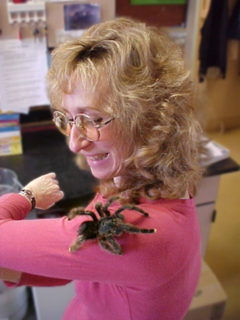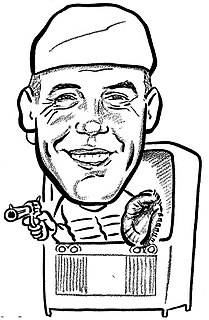A Quote by Nalini Singh
These predators loved with wild fury, but they were also darkly possessive, crossing the boundary into what humans might term obsession.
Related Quotes
Human relationships with predators have always been thorny. Predators are the first creatures our kind purposely eradicates. Too often, people feel humans are and should be in control; we are enraged to discover this is not true. And when other creatures share our appetites and kill our livestock (often animals we were raising to kill, ourselves), we call them vandals and murderers...Predators are the most persecuted creatures on Earth.
Hear and attend and listen; for this is what befell and be-happened and became and was, O my Best Beloved, when the Tame animals were wild. The dog was wild, and the Horse was wild, and the Cow was wild, and the Sheep was wild, and the Pig was wild -as wild as wild could be - and they walked in the Wet Wild Woods by their wild lones. But the wildest of all the wild animals was the Cat. He walked by himself and all places were alike to him
So much of our conversation about love is possessive. "You are mine. And if you stop being mine, I will hate you." And so exploring non-possessive ideas of love and friendship is important. Which is not to say we should just break down monogamy, I'm not taking a simplistic point of view. But, in addition to these examples of possessive love that we already have so much of, let us also explore what examples of non-possessive love and affection mean.
The Internet has been an invaluable acquisition. I wonder how we would do without it. Information can be sent from one country to the other within the space of minutes, crossing channels, crossing oceans, crossing continents. But still, we can't compete with the might and power and wealth of those who dominate, control, and own the means of the production of information today.
All humans are essentially wild creatures and hate confinement. We need what is wild, and we thrill to it, our wildness bubbling over with an anarchic joie de vivre. We glint when the wild light shines. The more suffocatingly enclosed we are - tamed by television, controlled by mortgages and bureaucracy - the louder our wild genes scream in aggression, anger and depression.
In prehistoric times, Homo sapiens was deeply endangered. Early humans were less fleet of foot, with fewer natural weapons and less well-honed senses than all the predators that threatened them. Moreover, they were hampered in their movements by the need to protect their uniquely immature young - juicy meals for any hungry beast.
The first question she was asked was What do you do? as if that were enough to define you. Nobody ever asked you who you really were, because that changed. You might be a judge or a mother or a dreamer. You might be a loner or a visionary or a pessimist. You might be the victim, and you might be the bully. You could be the parent, and also the child. You might wond one day and heal the next.
There were the physical challenges of hitchhiking across Turkey, Iran, Afghanistan, and Pakistan as they were quite dangerous areas. I wrote about that in The Journey Home. I loved my family and they loved me, so making a choice so completely different from the life they knew was also a challenge. Not having material possessions or the security of a home and taking vows of celibacy for life were kind of natural for me, although they were also challenging. But I guess the greatest challenge for me was that I loved so many different spiritual paths.


































